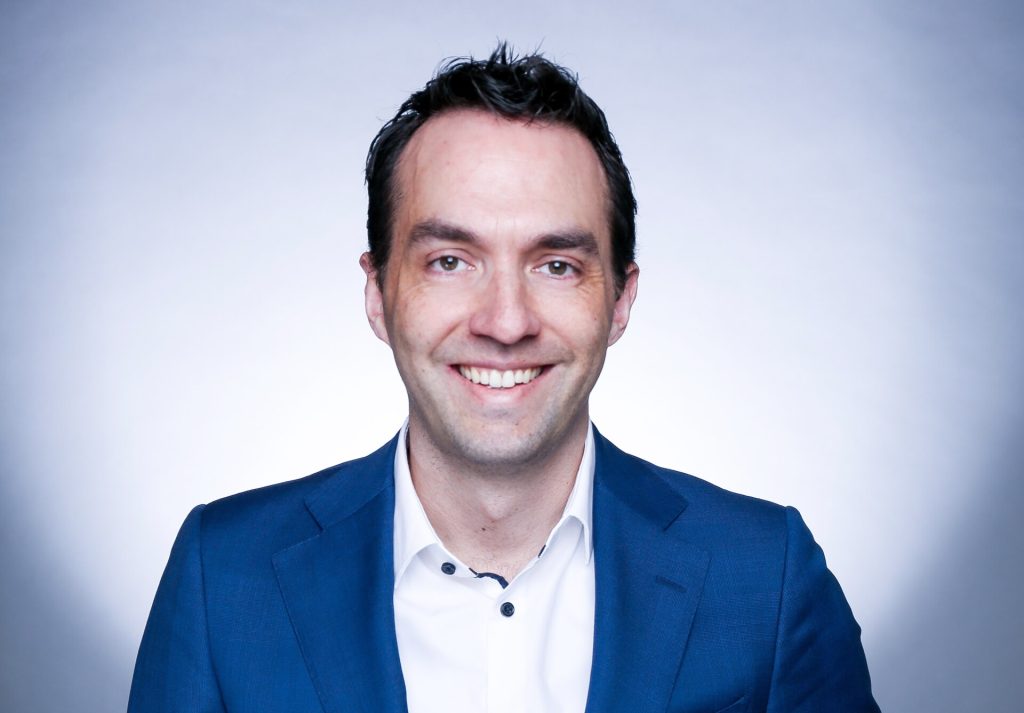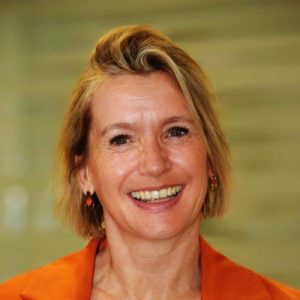Philipp Belle (CFO of DPR Construction Europe): “Our mantra is: never settle for the status quo.”

Philipp Belle, originally from Germany, has been a part of DPR Construction for two years. “DPR Construction, a company founded in Silicon Valley, was the brainchild of three friends – Doug, Peter, and Ron. They envisioned a major disruption in the construction industry back in 1990, a time when the sector was fiercely competitive and operated on a win-lose market dynamic. They believed a construction company could be different. Doug, Peter, and Ron, whose first names form the anagram DPR, sought to foster a win-win dynamic where collaboration led to better results for all project partners, cultivating a family-like relationship with subcontractors, their team, and clients, rather than a mere business one.”
In a company that doesn’t believe in titles, Belle is the equivalent of a CFO for DPR’s European operations. He asserts that this ethos is still palpable and is evident in the immense pride the organization takes in itself, its clients, and its team. But what was DPR’s unique strategy?
“Their chosen path was ‘discipline’. DPR has always undertaken complex technical construction projects within its five core markets, tasks that not everyone can manage. This approach allowed us to focus on the projects it was best at and offered the most expertise.”
Over the past 30 years, DPR has seen significant growth, initially collaborating with companies they were familiar with from the Valley, such as Meta. “Within the cherished family-like culture, we have managed to resolve complex issues alongside these successful companies in a confidential relationship.”
Most Admired Company
DPR, a privately-owned company, consciously refrains from publishing figures. Belle, the CFO, confirms that the company is financially healthy, but remains reserved about the specifics. So, what’s next for the CFO? Belle chuckles, “There’s plenty to do. DPR aims to be a ‘most admired company’ by 2030. The company’s purpose is ‘we exist to build great things.’ As an organization, we aim to put theory into practice. To be the best in construction. To have the best team spirit. And to be the best place to work. The management team mirrors themselves against other admired firms, many of whom are our customers.”
European Expansion and Growing Pains
This remit also includes a growth strategy for Europe, a task for which Belle was recruited in 2021. “DPR’s European ambition was sparked by the movement of their American clients towards Europe, Asia, and the Pacific. American clients were essentially seeking the ‘DPR mindset’ for their construction projects in Europe, which meant DPR had to follow suit. Initially, they operated here on a project basis, but in 2018, the management decided to establish DPR on a permanent basis. DPR’s European headquarters were established in Amsterdam, with additional offices in Frankfurt, Zurich, and Denmark.”
However, the initial phase was not without its challenges. “The primary focus was on staffing, securing projects, and executing them well. It was already a significant challenge to maintain cohesion within the entire European business unit, and it takes time to build a robust back-office. Then came the pandemic, creating a perfect storm.”
The complexity of different national tax regulations was much greater than initially anticipated. “In a short period, 10 entities sprouted across different countries, but the financial back-office was not yet fully staffed: a finance controller, an assistant, and support from an accounting firm. This was insufficient, leading to Belle’s arrival.”
Laying the Foundation
Upon Belle’s arrival, there was work to be done: “Preparing financial statements, conducting audits, establishing processes, building a new ERP system with WT and different currencies, and building and motivating a new team. My first year as CFO, in 2022, was about laying the foundation: clearing backlogs, providing education, coaching, and above all, working closely with his team, inspiring them, devising a strategy, and delegating tasks. It was crucial for me to make my team feel that they had a say in our direction and our values. Why do we exist as Finance? We review this every year. Are we still aligned with our mission? Are we still contributing, or do we need to adjust something? What are our goals, and how do we measure them?”
People: The Most Valuable Asset
From America, there was immense enthusiasm. “The management team granted me the liberty to make significant strides. This wasn’t solely due to the time difference; they also recognized the importance of local knowledge of local European regulations and their impact on processes.”
Belle learned early in his tenure that people are your most valuable assets. “In a large corporation, mistakes often go unnoticed, but in a small team like ours, you can only afford to work with high performers. Everyone needs to contribute, including myself. The mantra is to never accept status quo, but always strive to be the best. This also involves attentively listening to your people. What are their ideas and concerns? Both in terms of work and personal life, because that matters too. Celebrating small victories. Keeping the vision in mind.”
On Track, Shifting Focus to AI and even more to the business
DPR feels it is now on the right track and delivering on its European strategy. “How do we manage projects from a Finance perspective? In which countries are we going to operate? I can’t divulge too much about that. But what I can say is that this year, we’re going to look into piloting emerging technologies like Artificial Intelligence on the business side.”
At RoyalHaskoning DHV, where Belle once served as Finance Director of Business Control & Analytics, he gained considerable experience in this area. "Together with our data science team, which was part of the Finance team, we started to create machine based forecasts models based on data. Then we would look back to see how accurate these were. We set up models to transition away from Excel sheets and shift the ratio between inputting figures and engaging in discussion to 20/80, instead of the other way around. This was all before Gen AI – imagine what possibilities we have now?”










